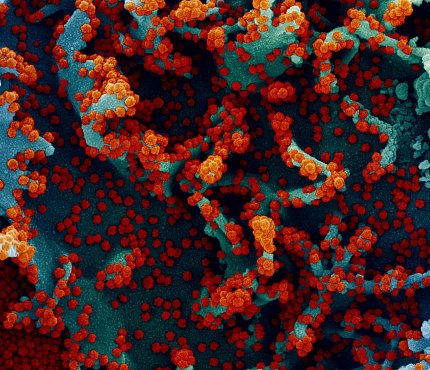Four Potential Therapeutics for Covid Enter Phase 2/3 Testing

Photo: NIAID
Enrollment has begun to test additional investigational drugs in the Accelerating Covid-19 Therapeutic Interventions and Vaccines (ACTIV) program.
ACTIV, sponsored by NIAID, is a public-private partnership that creates a coordinated research strategy to prioritize and speed development of promising Covid-19 treatments and vaccines. The new agents entering the randomized, placebo-controlled study are part of ACTIV-2, an adaptive trial designed to test investigational agents in non-hospitalized adult volunteers experiencing mild to moderate Covid-19 symptoms.
The added sub-studies will test four interventions for safety and efficacy: SNG001, an inhalable beta interferon delivered by nebulizer, (Synairgen); AZD7442, a long-acting monoclonal antibody combination that will be studied as both an infusion and an intramuscular injection (AstraZeneca); and Camostat mesilate, an orally administered serine protease inhibitor that may block SARS-CoV-2, the virus that causes Covid-19, from entering cells (Sagent Pharmaceuticals).
The first volunteer enrolled in the SNG001 sub-study on Feb. 10. The other agents under study are expected to begin enrolling participants soon.
If an investigational agent shows promise by demonstrating safety and reducing Covid-19 symptoms through 28 days following administration, the ACTIV-2 trial then moves to a phase 3 study to gather additional critical data from a larger pool of volunteers. ACTIV-2 trials compare outcomes of multiple interventions with a shared group of placebo recipients.
To qualify for ACTIV-2, participants must have tested positive for SARS-CoV-2 in the outpatient setting within 10 days and started experiencing symptoms within 8 days of enrolling. To be eligible for the AZD7442 infusion study, participants must be at higher risk—due to age, smoking and/or certain co-morbidities—of progressing to severe Covid-19.
